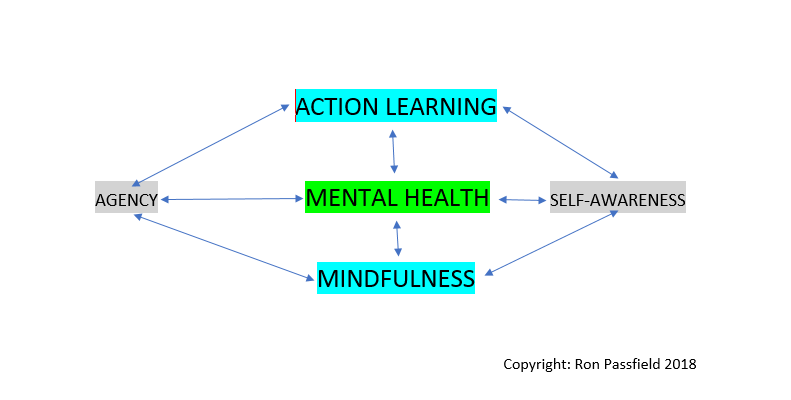In my last post I wrote about simple gratitude exercises. There was one in particular that resonated with me – reflecting on your day. As a result, I reflected on a specific event that occurred the day before. It was a cafe meeting I had with two of my colleagues. Reflecting on this event brought home to me how much I take for granted in my life. I will share my reflections about my gratitude for this interaction in the following post.
Gratitude for colleague 1 – occasional colleague
I last worked with this colleague about six months ago. Despite this elapsed time, I found we virtually took up the conversation “where we left off”. I often marvel at how this occurs – when you are with real friends, you seem to be able to resume “where you left off” even after 6 months, a year or even many years – it’s almost as if you communicate in the ether over time, even when you are going your separate ways.
Underlying this ease of conversation, is a common value system and belief about the inherent goodness of people. In our case, it also relates to an approach to organisational consulting which sets a lot of value on respecting people and seeking to create positive, productive and mentally healthy organisations. It is a rich source of support when you have a colleague, however occasional, that you can relate to so easily and share a common paradigm about people and organisations. I am very grateful for this rich relationship, developed more than three years ago, which has provided me with such professional support.
Gratitude for colleague 2 – weekly collaborator
Over more than a decade now, I have worked weekly with a colleague with whom I collaborate on manager/executive development and organisational reviews and development. While we may not be working specifically with a manager or organisation all the time, we are regularly sharing resources, planning workshops or interventions, reflecting on our activities and following up with clients.
We have in common a shared set of values which among other things encompasses working continuously to develop mentally healthy organisations. We do this through the Confident People Management Program (CPM), a longitudinal, action learning program we conduct with managers and executives in Government agencies throughout the State. In all, we have worked with over 2,000 managers in the past decade or so.
Additionally, we have undertaken organisational interventions at the request of clients who want to increase leadership effectiveness, undertake collaborative strategic planning, develop a positive and productive culture, heal divisions or act on aspects of organisational life identified by managers and/or staff as unsatisfactory.
My colleague has the contacts, the persistence and energy to generate this work – and I regularly express appreciation for this collaborative work and the rich experience and learning that this provides (not to mention the revenue involved also).
I appreciate her courageous commitment to her values and willingness to challenge others when their words and actions do not align with their stated values. Associated with this is the readiness to question her own words and actions through ongoing reflection. This personal commitment to continuous improvement in herself and others is foundational to the success we experience in engaging managers and organisations. It is underpinned by her absolute commitment to meet the needs of our clients, whether they are individuals, groups or organisations as a whole.
There is also an underlying courage and willingness to “have a go” and try something different which is both refreshing and encouraging and has taken us into consulting realms and activities that I thought would not eventuate. This is the inherent developmental aspect of our professional relationship, as we stretch our boundaries to meet the needs of our clients – managers and organisations.
I appreciate too that my colleague does not have “ego” investment in any of the processes we plan for our manager development or organisational intervention activities. This makes it so much easier to plan, explore alternative options, experiment and change course mid-action. It also facilitates the ability for collaborative reflection on action as well as in-action.
I am grateful that our relationship has been built on complementary skills – with my colleague contributing a unique depth of understanding of our public sector clients and their history as well as endless contacts. My contribution focuses on process design and our collaboration has developed my process design skills and provided the support/opportunity to explore new processes and embed different processes into our manager development activities and organisational interventions. We also share a common understanding of group and organisational dynamics and a commitment to action learning and the values that underpin this approach to manager and organisational development.
Underlying all this however, is a common set of values around respecting and valuing people and seeking to facilitate the development of mentally healthy organisations where executives, managers and staff can develop themselves and their organisations. We often describe our work as “enabling organisational participants/groups to have the conversations they should be having”- whether that is managing upwards, sharing values, planning together, resolving conflicts or building each other’s capacity and capability.
I have worked with many colleagues over more than forty years of educating and consulting, and it is rare indeed to have a colleague who brings so much to a professional relationship, who values the relationship above self-interest and is willing to collaborate in the very real sense of the word. My reflection on this cafe meeting brought home to me how much I value this ongoing professional relationship and all that it has enabled me to undertake and achieve. For this, I am very grateful, but I realise how much of this richness I take for granted. Reflecting on various professional experiences with my colleague is a catalyst for this expression of gratitude.
As we grow in mindfulness, we learn to take less for granted and grow in appreciation for the many people and things that enrich our lives. Reflection really aids the development of this sense of gratitude. Through reflection we come to see what others have contributed to our wellness, growth, mental health, sense of accomplishment and happiness. In relationships we can become who we are capable of being. Ongoing reflection helps relationships, professional and otherwise, to develop and grow richer. There is so much about reflection that underpins gratitude. Being mindful helps us to reflect, just as reflection contributes to our development of mindfulness and the associated internal and external awareness.
By Ron Passfield – Copyright (Creative Commons license, Attribution–Non Commercial–No Derivatives)
Image source: courtesy of johnhain on Pixabay
Disclosure: If you purchase a product through this site, I may earn a commission which will help to pay for the site, the associated Meetup group and the resources to support the blog.


